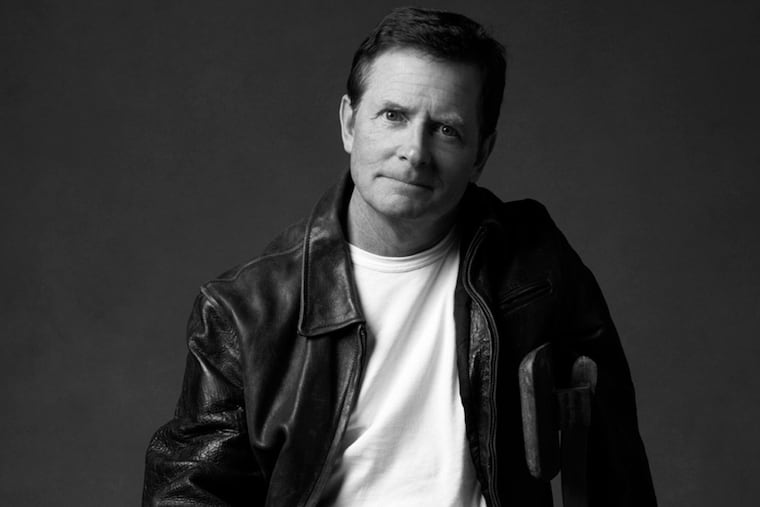‘No Time Like the Future’: Michael J. Fox writes about mortality, and a very bad year | Book review
The actor's latest memoir deals with a particularly impossible 2018, where his Parkinson's was only one of the issues.

No Time Like the Future: An Optimist Considers Mortality
By Michael J. Fox
Flatiron. 256 pp. $27.99
Reviewed by Porochista Khakpour
When Michael J. Fox told the world, in 1998, that he had been fighting Parkinson’s disease for the past seven years, it felt devastating to me in many ways. For one thing, like a lot of people of my generation, I had been a big fan of the hit ’80s TV sitcom Family Ties — obsessed with Alex P. Keaton without fully understanding the implications of his role as a weird Reagan-stanning surly Republican.
Fox’s disclosure was doubly shocking as not only was he just 29 when he was diagnosed, but he was also not the kind of celebrity who seemed vulnerable at all. To imagine him compromised in any crisis seemed impossible. For a while I had no idea how to process his struggles, though I was amazed he was still surviving as the years went by. I assumed wealth and celebrity were part of what kept him alive. Those privileges might have been a piece of it, but it wasn’t until I got sick myself, with late-stage Lyme disease, that I realized how much one’s attitude can also factor into one’s health.
I used this thinking anyway to justify my own survival all these years (whether true or not), and I thought about it a lot reading Fox’s recent memoir, No Time Like the Future: An Optimist Considers Mortality. The book joins his others in showing what attitude means to the illness equation. But here he is not just walking us through his diagnosis and the subsequent traumas of living publicly with a degenerative disorder.
Fox is focused on the other things that can go wrong with a body that’s still carrying a devastating disease, whether it is just the wear and tear of aging or other, more serious afflictions. This book centers on life going on for better or for worse, pivoting ultimately on a particularly impossible 2018, Fox’s “annus horriblis” as he calls it. Fox underwent major spinal surgery after a tumor had been found to on his spinal cord — unrelated to his Parkinson’s — and he had also taken a very bad fall — related to his Parkinson’s. The combination gave him and his family a whole new set of hurdles. Not to mention here we see him in his late 50s, dealing with career predicaments, as he continues to take on guest roles in various series; here we see him as a loyal husband and the father of four who are grappling with their unwavering devotion; here we see him in precarious mental health facing his first terrifying episode of psychosis.
Fox makes it through all this with both light humor and deep introspection: We make it through all the obstacles only for the book to be most heartbreakingly tagged with what will likely be a standard of 2020 memoirs: The epilogue that addresses the fact that the book launched amid one of human history’s greatest afflictions to date — our pandemic — and that we, just like Fox, are still struggling to see a way out.
Occasionally the many registers of the memoir fall into disharmony thematically: The dad jokes work well in the voicey-ness of the prose but distract when in, say, chapter-title placement. The introduction, for instance, is called “Fall Guy” but the harrowing fall it describes isn’t one that feels right for wordplay. Similarly, “Exile on Pain Street,” “Breaking Dad,” and “Homeland Security” feel slightly crass given the gravity of Fox’s anecdotes. Fox’s writing is at its best when it’s barreling into the demons. A phrase like “I’m taking my time. Time isn’t taking me” works far better than a chapter called “Double Bogey” that begins with the cheeky but ultimately tonally challenged introduction, “Why me? Why did this happen? I have a wife and children, a life that I love. So why was I afflicted with golf?”
Some of the most engaging parts are the ones where Fox’s past fame and his current fame intersect in awkward ways — the actor vs. the illness activist. “Don’t worry, he’s not taking your picture,” his wife tells him when a patient at the hospital takes out a cellphone near him. It’s not the only time Fox has anxiety about being recognized. At one point a friend asks him to join him at a cafe in Martha’s Vineyard, and Fox groans: “I wasn’t in the mood to run across Alan Dershowitz holding court with his entourage, but it was a drippingly hot afternoon, and a frozen coffee held appeal.” Impressive cast members very organically appear throughout: Harry Reid, George Stephanopoulos, Denis Leary, Larry David, Spike Lee, Paul Simon, and Ronald Reagan, of course! We also get locations, from Manhattan and Long Island to Bhutan and Tanzania.
But what makes the book a page-turner is its tenor: drolly conspiratorial, affably best-friend-y, infectiously convivial and unapologetically pensive. This is a book you really hear whether you have the audiobook or not. In sharing so much of himself beyond buzzwords and headlines, Fox has given us a gift we didn’t know to ask for, a gift that isn’t anywhere close to diminishing with his years. You get the feeling that even with these memoirs behind him and inevitable health hurdles ahead of him, many more chapters are yet to come.
Khakpour is the author of the memoir, “Sick,” the novels “Sons and Other Flammable Objects” and “The Last Illusion,” and most recently the essay collection “Brown Album: Essays on Exile and Identity.” She wrote this review for the Washington Post.